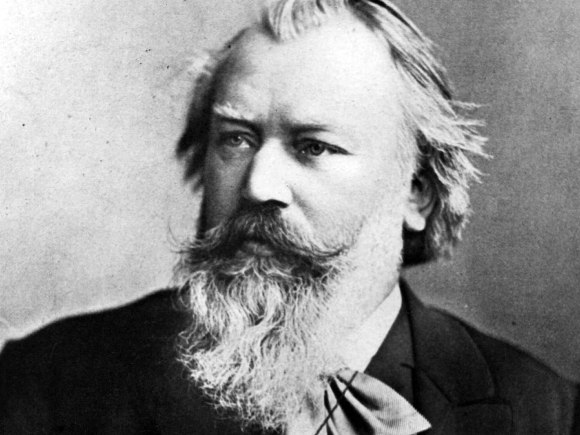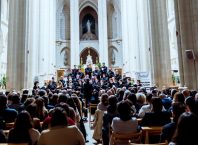The next Tzlilim concert at the Open University, this Thursday at 20:30, will focus on the music of Brahms, along with additional compositions by Mozart and Schumann. Pianist Steven Vanhauwaert will join soloists of the Israel Philharmonic and commentary will be given by Anat Sharon, director of the Tzlilim (“Sounds”) series.

The popularity of Johannes Brahms, both today and during his lifetime, is considerable. He is often referred to as one of the Three B’s – Bach, Brahms and Beethoven. This week’s concert will feature two of his works: the Violin Sonata No. 3 in D minor and the Clarinet Sonata No. 1 in F minor.
Towards the end of his life, after he had sworn off composing and gladly declared his retirement, Brahms attended a music festival where he heard works for clarinet by Mozart and Weber, and met the clarinetist Richard Mühlfeld, who impressed him greatly and became a close friend. Brahms found himself attracted to the sound of the clarinet, which was until then underrepresented in chamber music. Some years later, in 1894, he composed two clarinet sonatas. Along with his Clarinet Quintet of 1891, these works became part of a growing canon of clarinet works, and they are still considered masterpieces in the genre.
The Violin Sonata in D minor is Brahm’s last violin sonata, composed in 1888. He dedicated the work to Hans von Bülow, the great composer and conductor who was also the first husband of Cosima Wagner. Unlike his previous violin sonatas, this piece is written in four movements instead of three. It features the precision and eloquence of a seasoned artist but loses none of the passion evident in his early works, and is a perfect example of the beauty and poetry of Brahms’ style.
Enjoy an excellent recording of the Violin Sonata with a listening guide at http://www.kellydeanhansen.com/opus108.html.
Brahms met fellow composer Robert Schumann, his elder by two decades, in 1853. Schumann was greatly impressed by the young composer, and a terrific friendship formed between them and Clara, Schumann’s wife. However, Schumann was on borrowed time, and in the following year suffered an attack of psychosis that led to his hospitalization, and he died at the sanatorium in 1856. The extent of the relationship between Clara and her husband’s young protégé remains a mystery.
In that final year of lucidity, during one of Brahms’ visits, Schumann composed his “Fairy Tales” (“Märchenerzählungen”), four pieces for clarinet, viola and pianoforte. It seems unbelievable that they were written by a man on the verge of a mental breakdown. Though not inspired by any specific fairy tales, they seem to convey a fantasy world of their own.
The Kegelstatt Trio (K. 498) in E flat was composed in 1786. While living in Vienna, Mozart became close to the Jacquin family, and he dedicated this work to Franziska Jacquin, who was also a student of his. The Kegelstatt Trio features the unique combination of clarinet, viola and piano, instead of the more traditional piano-violin-cello formula. One of those few works for clarinet, it was written for the clarinetist Anton Stadler, a mutual friend of Mozart and the Jacquins, for whom Mozart later wrote the Clarinet Quintet and the beautiful Clarinet Concerto. When the piece was first performed in the Jacquins’ house, Stadler played the clarinet, Franziska the piano and Mozart himself the viola – for all involved, a perfect evening among friends.
Enjoy another superb evening among friends this week at the Open University to hear this excellent program performed by Israel’s top musicians, along with a special guest. Pianist Steven Vanhauwaert, who recently made his Israel debut, will be joined by Ron Selka (clarinet) Yevgenia Pikovsky (violin) and Dmitry Ratush (viola), all members of the Israel Philharmonic.
The concert will take place on November 28 at 20:30 at the Chais Auditorium on the Open University campus (1 University Road, Ra’anana). The commentary is given in Hebrew.
Tickets cost 80 NIS and can be ordered by phone at 1-700-700-169, or at the entrance to the auditorium on the evening of the concert. The brochure (in Hebrew) may be viewed here.





